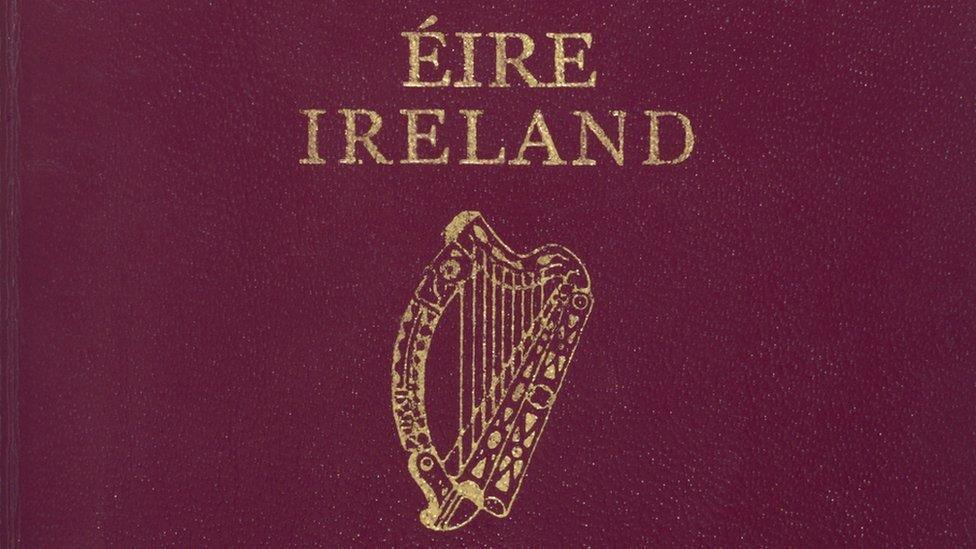EU referendum: Arlene Foster says Brexit vote offers 'opportunities'
- Published
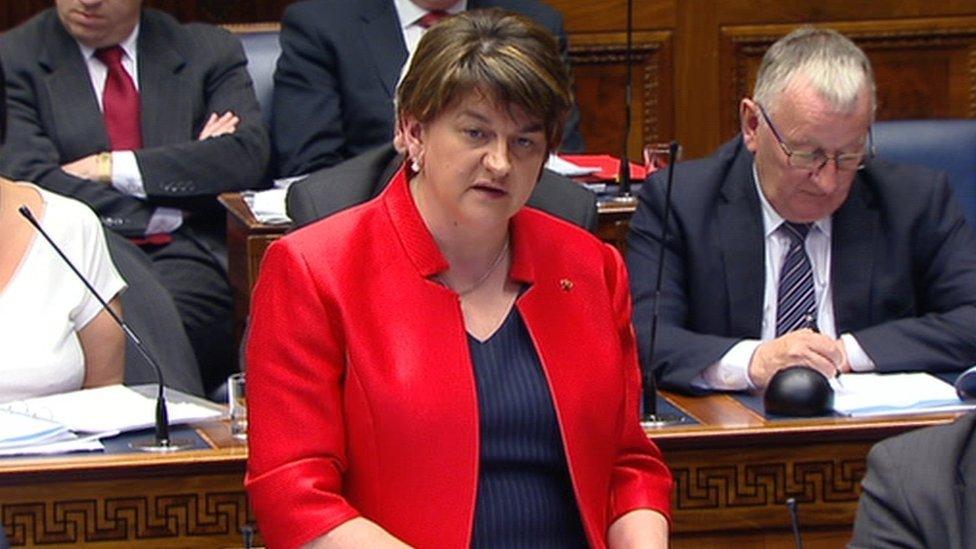
First Minister Arlene Foster told the Northern Ireland Assembly Brexit offered the opportunity for "ambition, innovation, flexibility and imagination"
Northern Ireland's first minister has said leaving the EU offered new opportunities and she criticised Remain supporters for "prophecies of doom".
Arlene Foster campaigned for a Leave vote in last week's EU referendum.
During First Minister's Questions, she said she would do "what's right" for Northern Ireland in the EU exit talks.
But in a special debate on the issue, Ulster Unionist leader Mike Nesbitt told the Northern Ireland Assembly it was "facing a political crisis".
"We have entered an era of uncertainty that will last years, not months," Mr Nesbitt told MLAs.
"Why is there no contingency plan to deal with this calamity?"
Overall, the UK electorate voted to leave the EU by 52% to 48%, but in Northern Ireland 56% of voters wanted to remain in the EU.
During Question Time at Stormont, Mrs Foster said she acknowledged that there were a lot of people who were angry, disappointed and had made "terrible prophecies of doom".
She told MLAs: "If others want to engage in navel-gazing that's fine. My focus is doing what's right for all the people of Northern Ireland in terms of the negotiations which are coming up very soon."
She said Brexit offered the opportunity for "ambition, innovation, flexibility and imagination."
During the EU Referendum debate, Mr Nesbitt asked for the first and deputy first ministers to provide an "assurance" that they will "work tirelessly to persuade the people that we are still better off within the United Kingdom, even in the event of this Brexit".
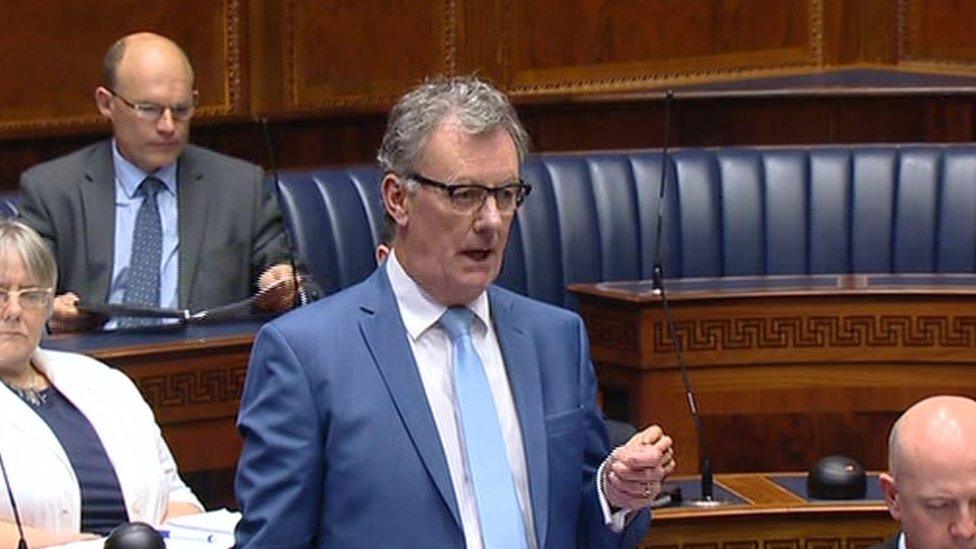
UUP leader Mike Nesbitt told Stormont: "We have entered an era of uncertainty that will last years, not months"
However, the Democratic Unionist Party MLA Christopher Stalford said the referendum "was an exercise in democracy".
"Had the vote gone the other way, I would have had to take it on the chin and move on," he said.
He asked MLAs to "accept the verdict of the people", and said to ignore the referendum outcome would be "a grave mistake".
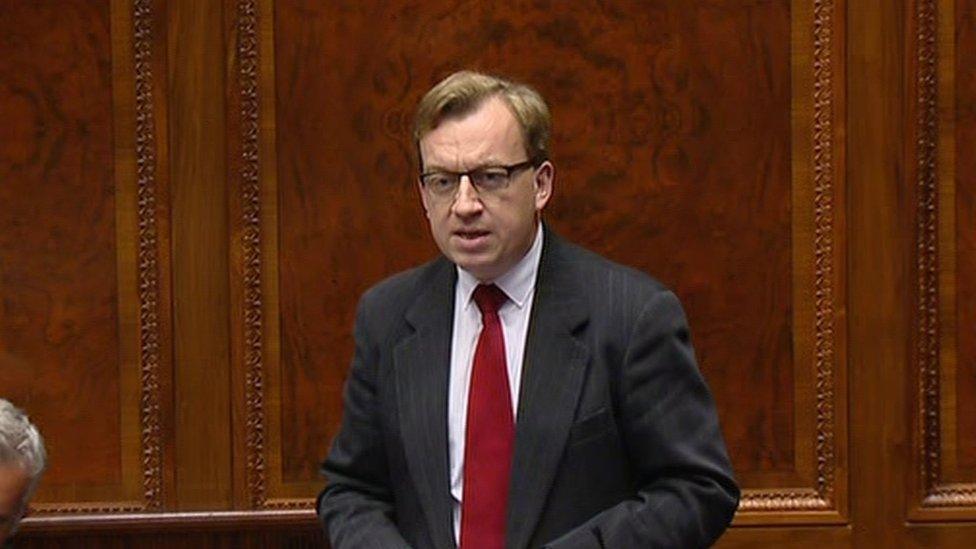
The DUP MLA Christopher Stalford said MLAs should accept the verdict of the people
Sinn Féin's Conor Murphy described his constituents "as angry and bewildered".
He said there is "responsibility to navigate a way out of the mess".
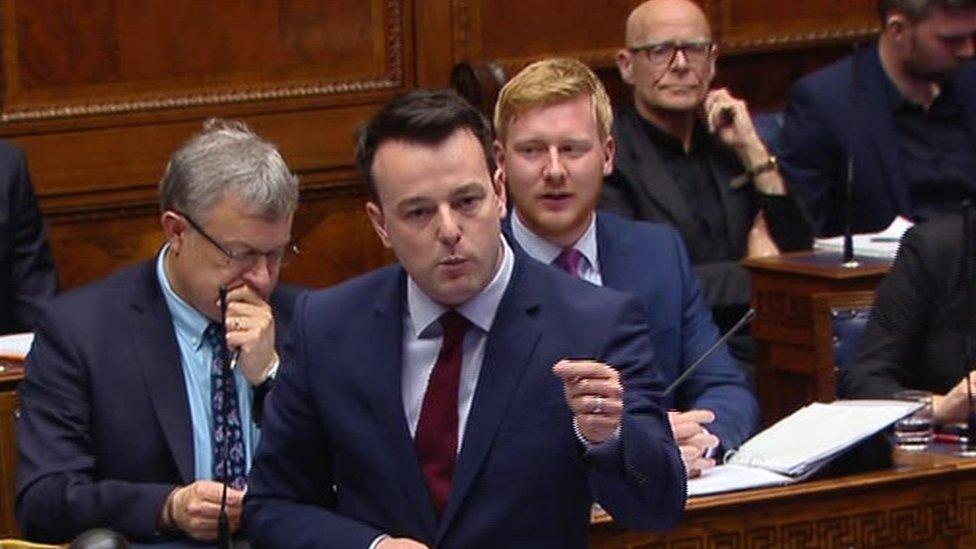
The SDLP leader Colum Eastwood said some of his constituents are "devastated and scared about what happens next"
SDLP leader Colum Eastwood said he has spoken to many people in his Foyle constituency who are "devastated and scared about what happens next".
The Alliance Party's Naomi Long said the referendum "was an internal Tory matter", and said anyone who argued it was about anything else "needs their head examined".
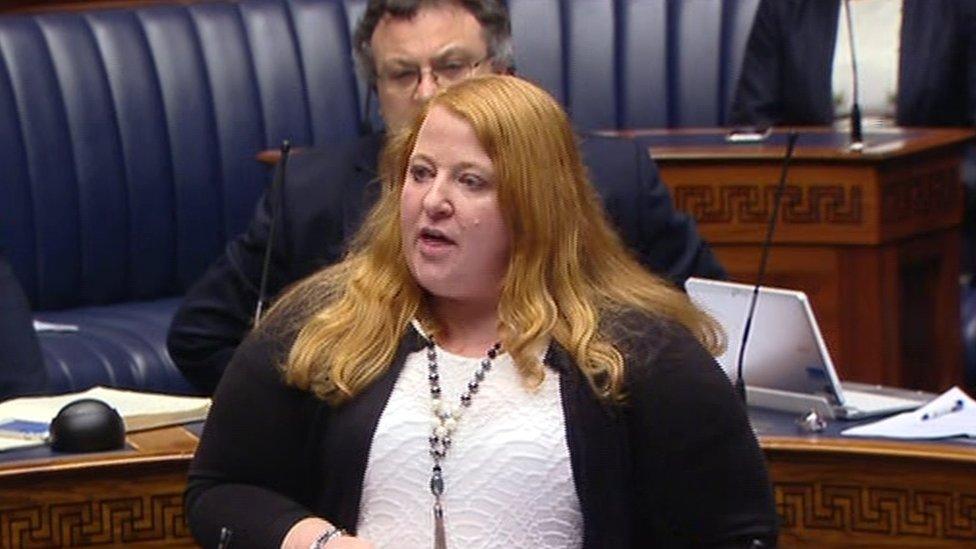
The Alliance Party MLA Naomi Long said the referendum was "an internal Tory matter"
The DUP's Edwin Poots said "this nation will stay together", adding that that Scotland's First Minister Nicola Sturgeon will "fail in what she is doing".
Ms Sturgeon told the BBC that Holyrood could try to block the UK's exit from the EU.
Sinn Féin's John O'Dowd said the United Kingdom is "not united" and "the islands are divided like they have never been divided before".
He said he hopes he "can be confident" that the opposition will work with the executive on the impacts of Brexit.
The Dáil (Irish parliament) also debated the impact of the decision on the Republic of Ireland.
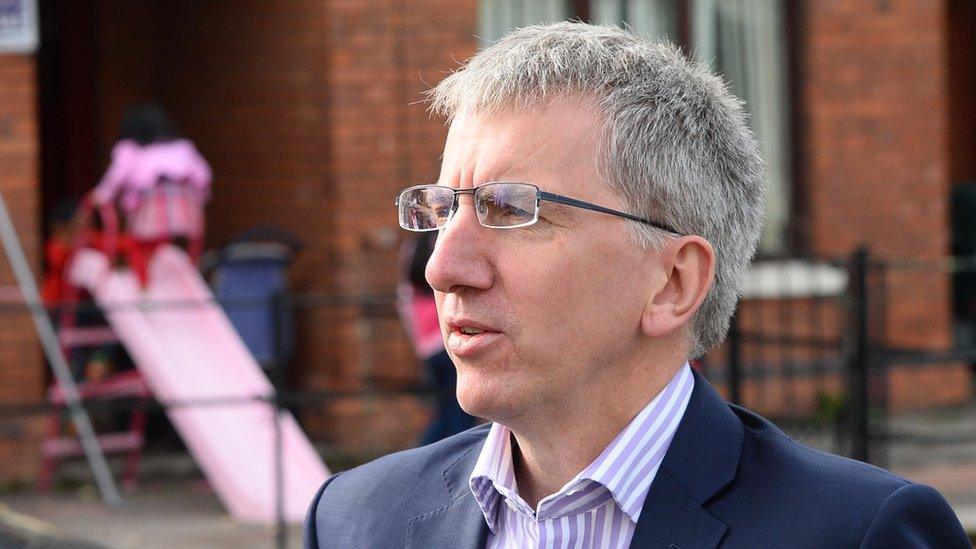
Finance Minister Máirtín Ó Muilleoir said he believes Northern Ireland has a veto "over attempts to force us out of the EU"
Speaking earlier on Monday, Finance Minister Máirtín Ó Muilleoir said the situation as "as grave a crisis as we have faced in four decades".
"The Irish government has scaled back its prediction of growth in the year ahead. It's being predicted in Britain that there will be a recession.
"Its our job to find a way through this maze, but also the mandate must be respected - the majority here voted to remain.
"I'm asking people to get organised, because we cannot afford to have this economy pushed back into recession."
- Published27 June 2016
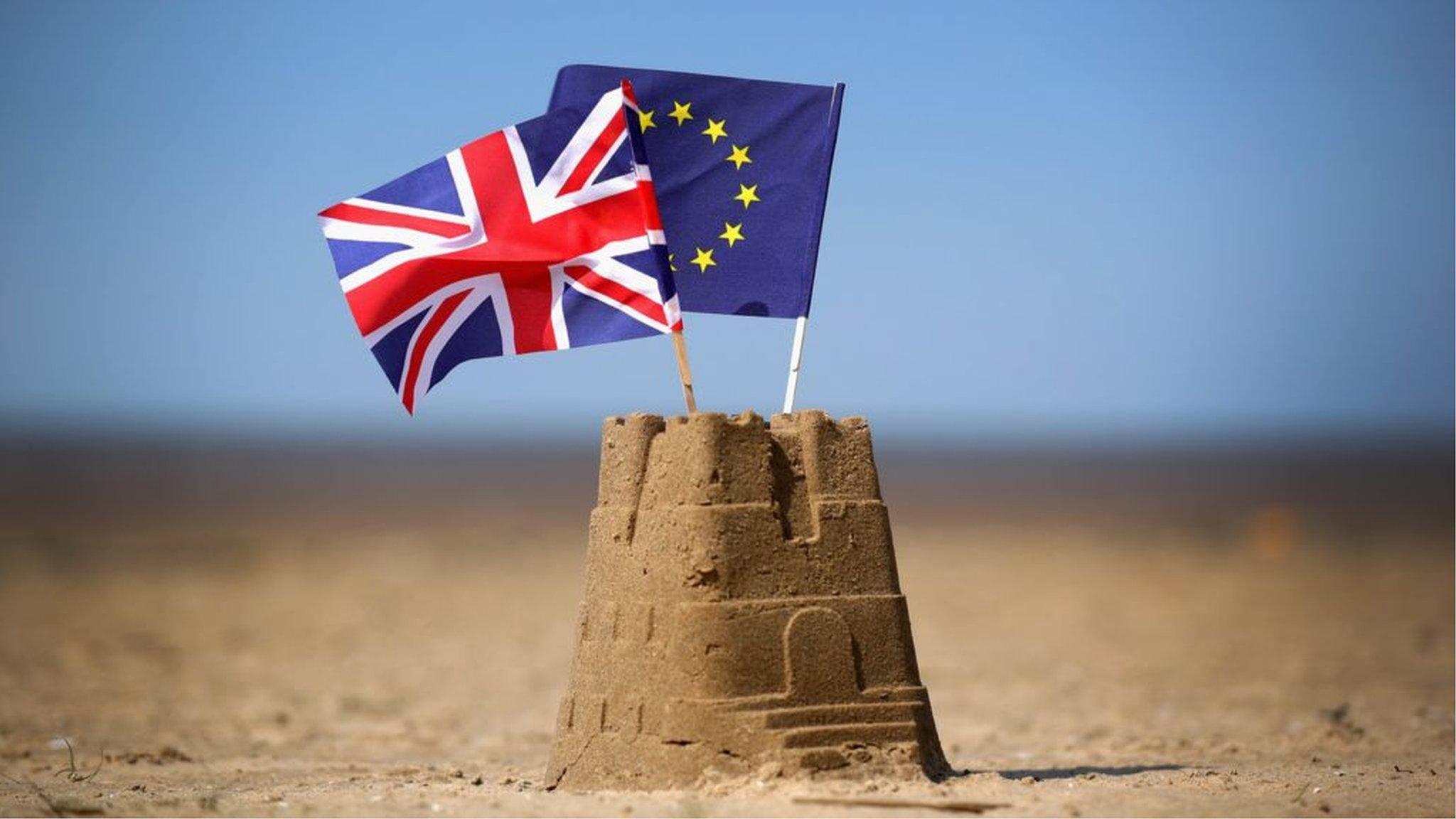
- Published27 June 2016
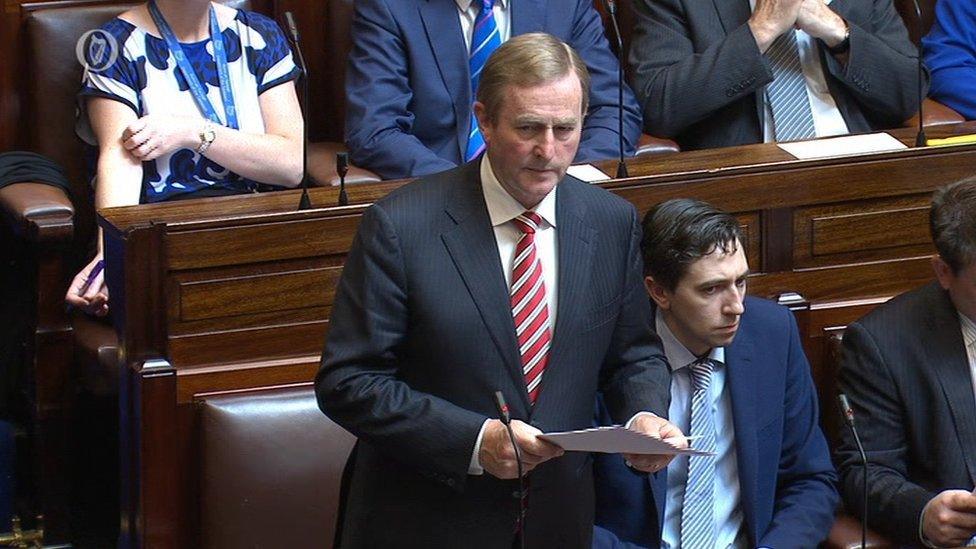
- Published26 June 2016
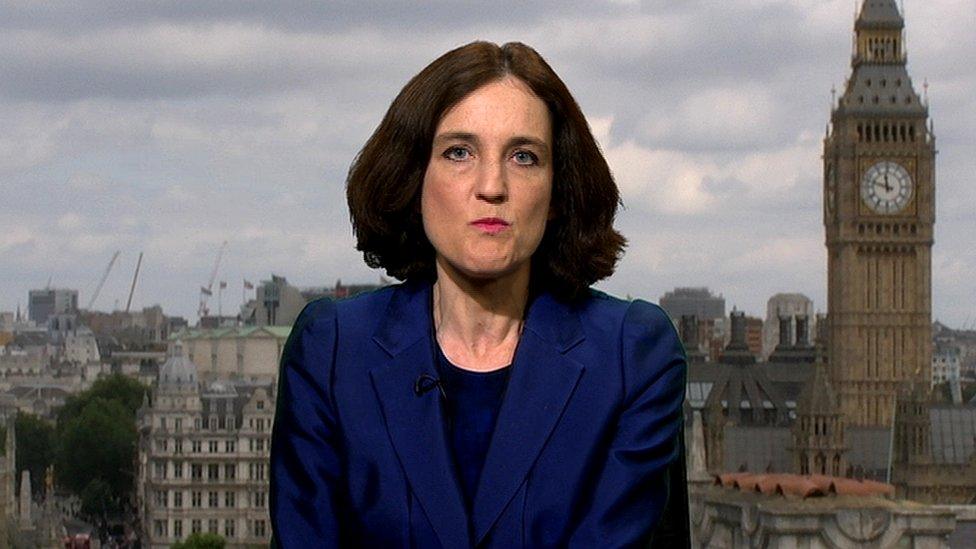
- Published25 June 2016
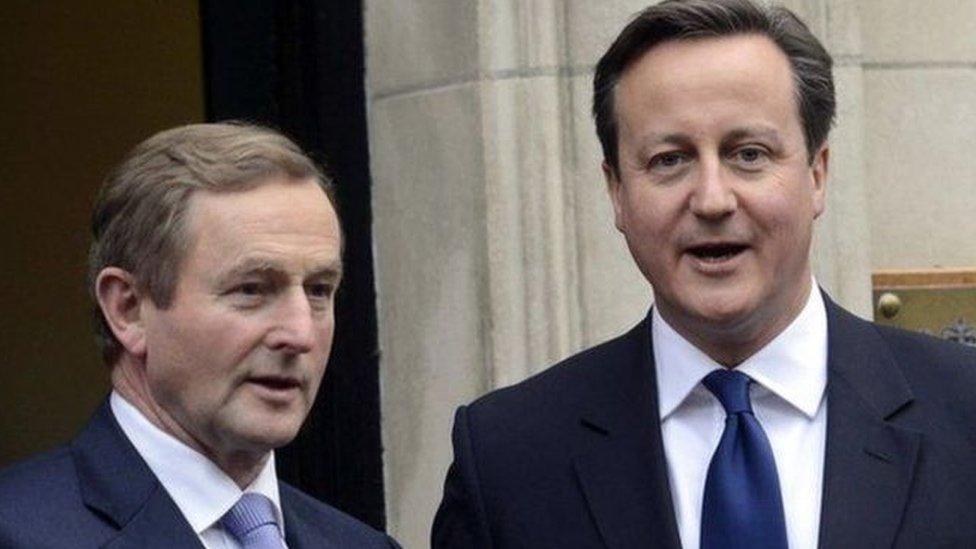
- Published24 June 2016
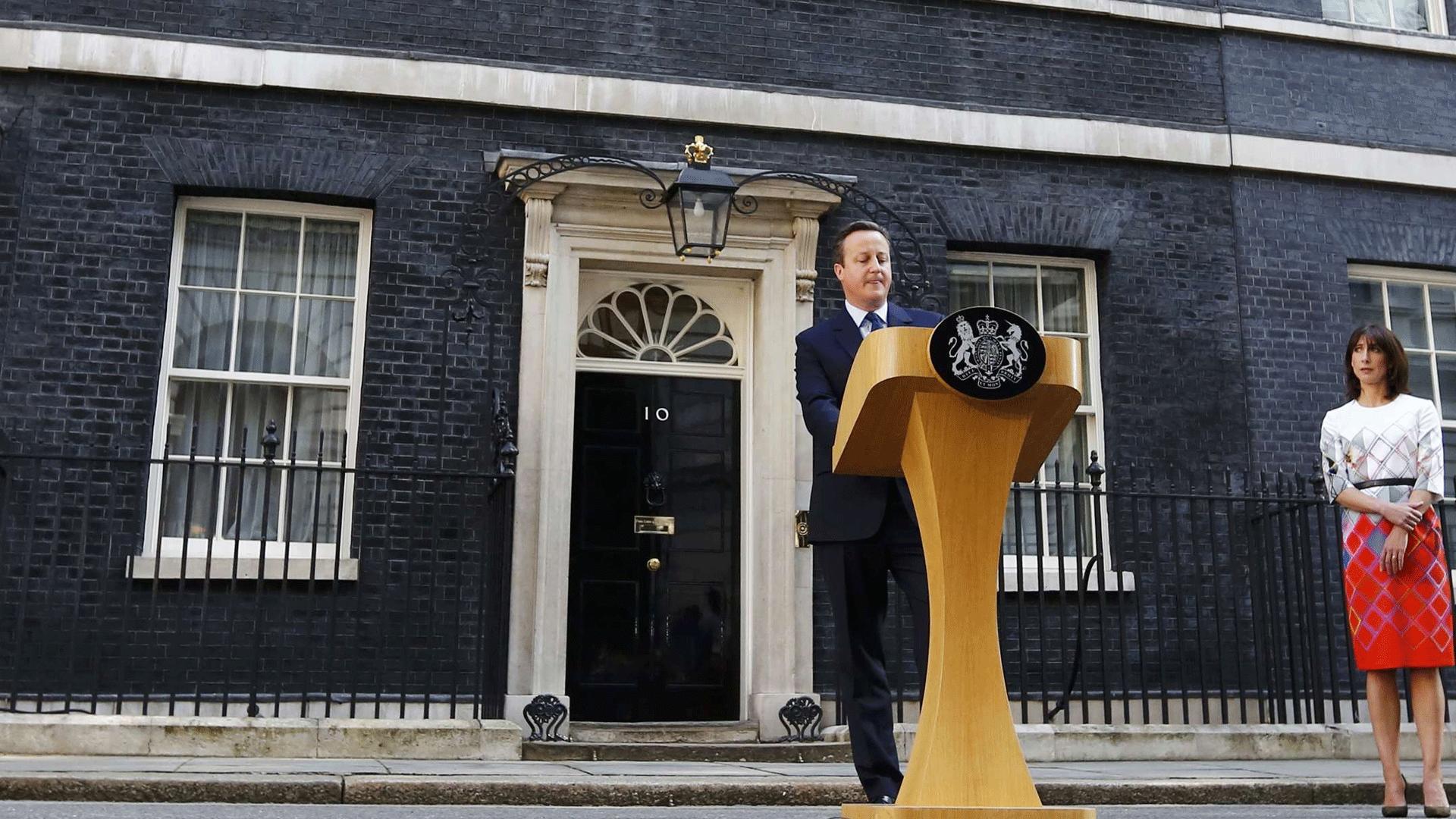
- Published24 June 2016
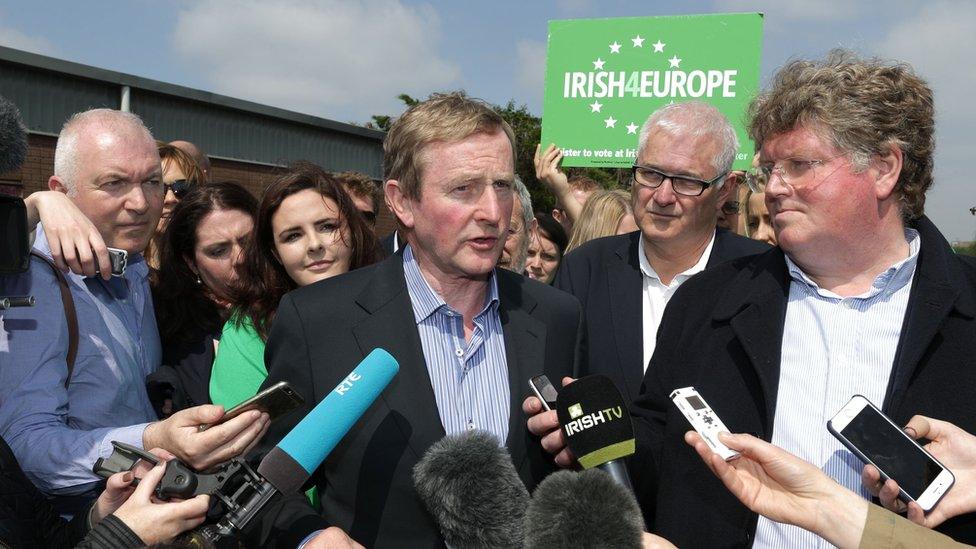
- Published24 June 2016
